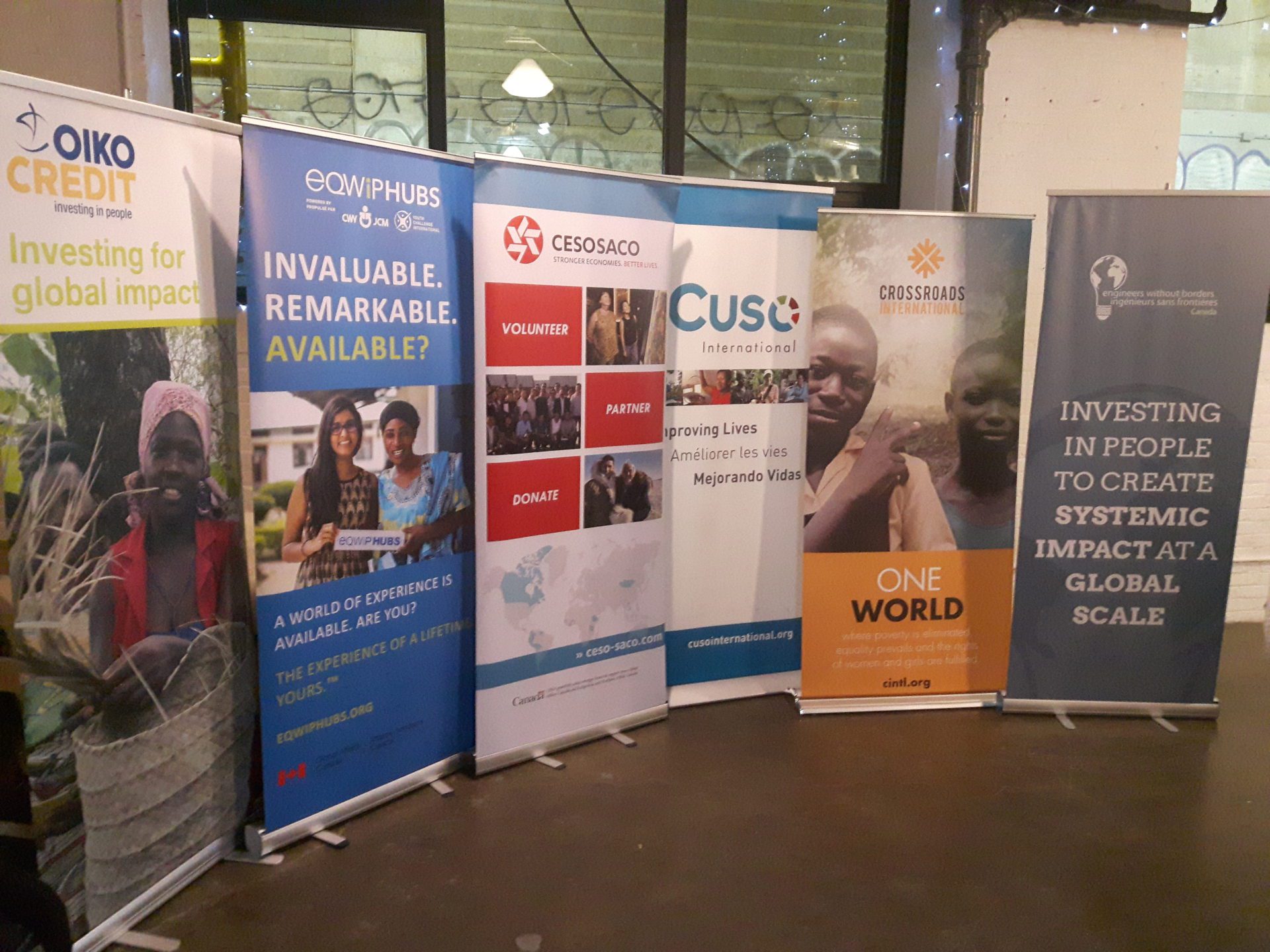A program that helps women in Peru get small loans is just one example of how Canada encourages female empowerment around the world.
Volunteers, representatives and interested members of society gathered on the main floor at Toronto’s Centre for Social Innovation to discuss the challenges of gender equality in different countries.
The organizations in attendance included Cuso International, Engineers Without Borders, Crossroads International, Oikocredit Canada, CESO and EQWIP. The event was put on as a part of International Development Week, which is organized by Global Affairs Canada.
Cuso has several projects and programs that take them to different countries in need, from Peru to the Caribbean, to assist with issues such as poverty, equality and micro-financing.
One volunteer is stationed in Peru, helping women with their finances.
“He is working on microfinancing simply because it’s mostly women who are looking for those microfinance loans,” said Tina Sweeney, outreach and partnerships officer of Cuso International.
Microfinancing is provided to impoverished individuals, in the form of small loans, who otherwise wouldn’t have access to financial services.
The event on Feb. 6 was hosted by Cuso International, a non-profit development organization that works to eradicate poverty and inequality through the efforts of volunteers, donors and partners.

Volunteers from various organizations share their experiences at the Centre for Social Innovation. (Monique Thompson/Toronto Observer)
It showcased volunteer organizations that help women in different countries with finances, education and achieving equality.

Cuso International representative Tina Sweeney at the Together for Gender Equality event at the Centre for Social Innovation (Monique Thompson/Toronto Observer)
“They were invited to show the diversity of the work of Canada’s role in the world,” Sweeney said.
Engineers Without Borders (EWB) believes that gender equality is fundamentally necessary to end poverty.
Their new initiative, Hello 2030, is a campaign that EWB Canada launched to raise awareness about sustainable development goals and to get an understanding about what Canadians actually want.
In 2015, Canada and 192 other UN members adopted the 2030 Agenda for Sustainable Development. It envisions a secure world free of poverty and hunger, with full and productive employment, access to quality education and universal health coverage, the achievement of gender equality and the empowerment of all women and girls, and an end to environmental degradation.

The UN’s Sustainable Development goals for 2030. (Monique Thompson/Toronto Observer)
EWB associate director of communications Namrata Narayan explained that they went around Canada asking as what changes they want to see and distributed a satirical newspaper that depicted the end of all of the world’s problems. It is called the Global Times.

A copy of the satirical paper The Global Times, produced by the Hello 2030 initiative. (Monique Thompson/Toronto Observer)
Canada’s policies on gender equality are spelled out in the federal government’s new international feminist assistance policy, which aims to eventually ensure that at least 95 per cent of the country’s foreign aid helps improve the lives of women and girls.
However, not all countries have the same definition of feminism.
Cuso volunteer Asia Clarke, who recently volunteered in Dominica, Ghana and Swaziland, realized that feminism here doesn’t mean the same in those countries.
For many women outside North America, managing a household is empowering, whereas it might be viewed differently here, Clarke said.
“What we consider to be women’s empowerment here — and a lot of the people spoke about, you know women can start their own business, do less chores at home and access funding — in certain circumstances that dis-empowers women,” Clarke said.
“It’s a really strange thing to conceptualize, to think that the things we think would empower women, actually if you’re in a context that just doesn’t support that women’s movement, you might actually be putting women in harm’s way.”

